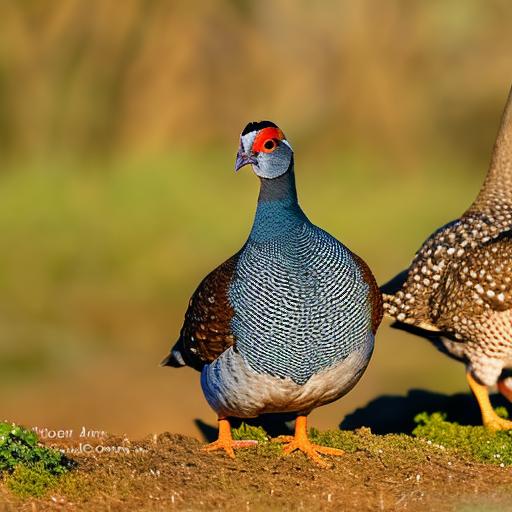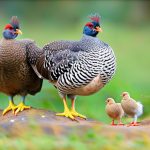When it comes to housing requirements for chickens, there are a few key factors to consider. First and foremost, the coop should provide adequate protection from the elements, including rain, wind, and extreme temperatures. It should also be well-ventilated to prevent the buildup of moisture and ammonia from chicken droppings. Additionally, the coop should be predator-proof, with secure latches and sturdy construction to keep out potential threats such as raccoons, foxes, and birds of prey.
In terms of size, the general rule of thumb is to provide at least 2-3 square feet of space per chicken inside the coop, and 8-10 square feet per chicken in the outdoor run. This allows for ample room for the chickens to move around, perch, and engage in natural behaviors such as scratching and dust bathing. The coop should also have nesting boxes for the hens to lay their eggs, as well as roosting bars for them to sleep on at night. Finally, it’s important to keep the coop clean and well-maintained to prevent the buildup of bacteria and parasites that can lead to health issues for the chickens.
When it comes to housing requirements for chickens, there are a few key factors to consider. First and foremost, the coop should provide adequate protection from the elements, including rain, wind, and extreme temperatures. It should also be well-ventilated to prevent the buildup of moisture and ammonia from chicken droppings. Additionally, the coop should be predator-proof, with secure latches and sturdy construction to keep out potential threats such as raccoons, foxes, and birds of prey.
In terms of size, the general rule of thumb is to provide at least 2-3 square feet of space per chicken inside the coop, and 8-10 square feet per chicken in the outdoor run. This allows for ample room for the chickens to move around, perch, and engage in natural behaviors such as scratching and dust bathing. The coop should also have nesting boxes for the hens to lay their eggs, as well as roosting bars for them to sleep on at night. Finally, it’s important to keep the coop clean and well-maintained to prevent the buildup of bacteria and parasites that can lead to health issues for the chickens.
Key Takeaways
- Provide a spacious and secure housing environment for your birds to ensure their safety and comfort.
- Offer a balanced diet and access to clean water to maintain the health and well-being of your birds.
- Create suitable nesting and roosting areas to encourage natural behaviors and provide a sense of security for your birds.
- Implement predator protection measures to safeguard your birds from potential threats.
- Maintain a clean and hygienic living space for your birds to prevent the spread of diseases and ensure their overall health.
Feeding and Watering
Proper feeding and watering are essential for keeping chickens healthy and productive. Chickens require a balanced diet that includes a mix of grains, protein, vitamins, and minerals. A good quality commercial feed is a convenient option that provides all the essential nutrients in one package. However, many chicken keepers also supplement their birds’ diet with kitchen scraps, garden produce, and even insects or worms for added protein.
In addition to a balanced diet, chickens also need access to clean, fresh water at all times. Water is essential for digestion, egg production, and overall health. It’s important to provide water in a way that prevents contamination from droppings or debris. This may involve using a waterer with a cover or placing it on a raised platform to keep it off the ground. In cold climates, it’s also important to prevent water from freezing by using heated waterers or manually refreshing it several times a day.
Proper feeding and watering are essential for keeping chickens healthy and productive. Chickens require a balanced diet that includes a mix of grains, protein, vitamins, and minerals. A good quality commercial feed is a convenient option that provides all the essential nutrients in one package. However, many chicken keepers also supplement their birds’ diet with kitchen scraps, garden produce, and even insects or worms for added protein.
In addition to a balanced diet, chickens also need access to clean, fresh water at all times. Water is essential for digestion, egg production, and overall health. It’s important to provide water in a way that prevents contamination from droppings or debris. This may involve using a waterer with a cover or placing it on a raised platform to keep it off the ground. In cold climates, it’s also important to prevent water from freezing by using heated waterers or manually refreshing it several times a day.
Nesting and Roosting
Nesting and roosting are important behaviors for chickens, so it’s essential to provide suitable accommodations for these activities. Nesting boxes should be located in a quiet, secluded area of the coop and filled with clean bedding such as straw or wood shavings. Each box should be large enough for a hen to comfortably enter and turn around, with enough space for her to lay her eggs without feeling cramped or stressed.
Roosting bars should be placed higher than the nesting boxes, as chickens prefer to sleep in elevated positions for safety and comfort. The bars should be wide enough for the chickens to grip with their feet and spaced far enough apart to prevent overcrowding. It’s also important to provide enough roosting space so that each bird has plenty of room to perch without feeling crowded or jostled by other chickens.
Nesting and roosting are important behaviors for chickens, so it’s essential to provide suitable accommodations for these activities. Nesting boxes should be located in a quiet, secluded area of the coop and filled with clean bedding such as straw or wood shavings. Each box should be large enough for a hen to comfortably enter and turn around, with enough space for her to lay her eggs without feeling cramped or stressed.
Roosting bars should be placed higher than the nesting boxes, as chickens prefer to sleep in elevated positions for safety and comfort. The bars should be wide enough for the chickens to grip with their feet and spaced far enough apart to prevent overcrowding. It’s also important to provide enough roosting space so that each bird has plenty of room to perch without feeling crowded or jostled by other chickens.
Predator Protection
Protecting chickens from predators is a top priority for any poultry keeper. Common predators such as raccoons, foxes, dogs, and birds of prey can pose a serious threat to chickens if given the opportunity. To prevent attacks, it’s important to secure the coop with sturdy hardware cloth or welded wire mesh that extends at least 12 inches below ground to prevent digging predators from gaining access.
Additionally, all doors and windows should be equipped with strong latches or locks that are resistant to tampering. It’s also important to regularly inspect the coop for any signs of damage or wear that could compromise its security. Finally, providing a secure outdoor run with a roof or netting can help protect chickens from aerial predators such as hawks or owls.
Protecting chickens from predators is a top priority for any poultry keeper. Common predators such as raccoons, foxes, dogs, and birds of prey can pose a serious threat to chickens if given the opportunity. To prevent attacks, it’s important to secure the coop with sturdy hardware cloth or welded wire mesh that extends at least 12 inches below ground to prevent digging predators from gaining access.
Additionally, all doors and windows should be equipped with strong latches or locks that are resistant to tampering. It’s also important to regularly inspect the coop for any signs of damage or wear that could compromise its security. Finally, providing a secure outdoor run with a roof or netting can help protect chickens from aerial predators such as hawks or owls.
Health and Hygiene
Maintaining good health and hygiene practices is essential for keeping chickens happy and disease-free. Regular cleaning of the coop and nesting boxes is important to prevent the buildup of bacteria and parasites that can lead to illness. This may involve removing soiled bedding, scrubbing surfaces with a mild disinfectant, and allowing everything to dry thoroughly before adding fresh bedding.
It’s also important to practice good biosecurity measures by limiting exposure to wild birds or other poultry flocks that could potentially introduce diseases to your chickens. Providing regular access to dust baths can help chickens keep their feathers clean and free of parasites such as mites or lice. Additionally, keeping feeders and waterers clean and free of mold or debris can help prevent digestive issues and other health problems.
Maintaining good health and hygiene practices is essential for keeping chickens happy and disease-free. Regular cleaning of the coop and nesting boxes is important to prevent the buildup of bacteria and parasites that can lead to illness. This may involve removing soiled bedding, scrubbing surfaces with a mild disinfectant, and allowing everything to dry thoroughly before adding fresh bedding.
It’s also important to practice good biosecurity measures by limiting exposure to wild birds or other poultry flocks that could potentially introduce diseases to your chickens. Providing regular access to dust baths can help chickens keep their feathers clean and free of parasites such as mites or lice. Additionally, keeping feeders and waterers clean and free of mold or debris can help prevent digestive issues and other health problems.
Space and Enclosure

Providing adequate space for chickens is crucial for their physical and mental well-being. In addition to providing enough room inside the coop for each bird to move around comfortably, it’s also important to offer an outdoor run where they can scratch in the dirt, peck at grasses and insects, and soak up some sunshine. The outdoor run should be securely enclosed with fencing or netting to prevent escape or intrusion from predators.
The size of the outdoor run will depend on the number of chickens you have, but as a general rule of thumb, aim for at least 8-10 square feet per bird. This will allow them plenty of room to exercise and engage in natural behaviors without feeling crowded or stressed. Providing enrichment such as perches, dust bathing areas, and hanging treats can also help keep chickens active and entertained.
Providing adequate space for chickens is crucial for their physical and mental well-being. In addition to providing enough room inside the coop for each bird to move around comfortably, it’s also important to offer an outdoor run where they can scratch in the dirt, peck at grasses and insects, and soak up some sunshine. The outdoor run should be securely enclosed with fencing or netting to prevent escape or intrusion from predators.
The size of the outdoor run will depend on the number of chickens you have, but as a general rule of thumb, aim for at least 8-10 square feet per bird. This will allow them plenty of room to exercise and engage in natural behaviors without feeling crowded or stressed. Providing enrichment such as perches, dust bathing areas, and hanging treats can also help keep chickens active and entertained.
Socialization and Enrichment
Chickens are social animals that thrive on interaction with their flock mates. Providing opportunities for socialization can help reduce stress and aggression within the flock. This may involve introducing new birds gradually so they have time to establish their place in the pecking order without causing undue conflict. It’s also important to provide enough space within the coop and outdoor run so that each bird has room to move around without feeling crowded or threatened by others.
In addition to socialization, providing enrichment activities can help keep chickens mentally stimulated and engaged. This can include hanging treats such as cabbage or corn on a string for them to peck at, providing perches at different heights for them to roost on, or offering dust bathing areas where they can clean their feathers and skin naturally. Providing plenty of opportunities for natural behaviors such as scratching in the dirt or pecking at insects can also help keep chickens active and content.
Chickens are social animals that thrive on interaction with their flock mates. Providing opportunities for socialization can help reduce stress and aggression within the flock. This may involve introducing new birds gradually so they have time to establish their place in the pecking order without causing undue conflict. It’s also important to provide enough space within the coop and outdoor run so that each bird has room to move around without feeling crowded or threatened by others.
In addition to socialization, providing enrichment activities can help keep chickens mentally stimulated and engaged. This can include hanging treats such as cabbage or corn on a string for them to peck at, providing perches at different heights for them to roost on, or offering dust bathing areas where they can clean their feathers and skin naturally. Providing plenty of opportunities for natural behaviors such as scratching in the dirt or pecking at insects can also help keep chickens active and content.
Furthermore, introducing new objects or toys into their environment, such as mirrors or hanging objects, can also provide mental stimulation and prevent boredom. Rotating their toys and changing their environment periodically can help keep their interest and prevent them from becoming complacent. Overall, providing enrichment activities for chickens is essential for their mental well-being and can contribute to a healthier and happier flock.
If you’re considering keeping adult guinea fowl, it’s important to provide them with a suitable living environment. One option to consider is the Snaplock Chicken Coop, which offers a secure and spacious housing solution for guinea fowl. This coop provides ample space for the birds to roam and roost, ensuring their comfort and safety. Additionally, the design of the coop allows for easy cleaning and maintenance, making it a practical choice for guinea fowl owners.
FAQs
What type of housing is suitable for adult guinea fowl?
Adult guinea fowl should be kept in a secure and spacious coop or aviary to protect them from predators and provide them with enough room to move around and roost.
What should the flooring of the guinea fowl housing be like?
The flooring of the guinea fowl housing should be covered with a layer of straw, wood shavings, or sand to provide a comfortable and clean surface for the birds.
How should the housing be ventilated?
Proper ventilation is important for the health of adult guinea fowl. The housing should have good air circulation to prevent the buildup of moisture and ammonia.
What kind of protection from the elements should the housing provide?
The housing should provide protection from extreme weather conditions such as rain, wind, and direct sunlight. It should also have a sheltered area where the guinea fowl can seek refuge.
Is it necessary to provide perches or roosts in the housing?
Yes, adult guinea fowl enjoy roosting and should be provided with perches or roosts inside their housing to mimic their natural behavior.
Should the housing have nesting boxes for the guinea fowl?
If you want to encourage breeding, providing nesting boxes in the housing can be beneficial. However, it is not necessary for the general housing of adult guinea fowl.
Meet Walter, the feathered-friend fanatic of Florida! Nestled in the sunshine state, Walter struts through life with his feathered companions, clucking his way to happiness. With a coop that’s fancier than a five-star hotel, he’s the Don Juan of the chicken world. When he’s not teaching his hens to do the cha-cha, you’ll find him in a heated debate with his prized rooster, Sir Clucks-a-Lot. Walter’s poultry passion is no yolk; he’s the sunny-side-up guy you never knew you needed in your flock of friends!







